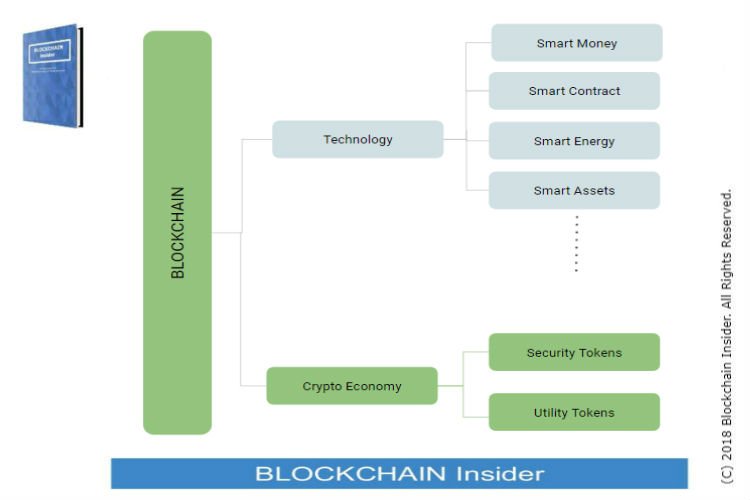I mentioned in Chapter 1: Blockchain, Bitcoin & Money of the book Blockchain Insider that in order to explore Blockchain, we need to study bitcoin; to understand bitcoin, we need to know what is money and how it works.
As we had gone through The Evolution of Money and some introduction to Blockchain, we shall now look further into Blockchain from two different perspective - the technology part and the crypto economy part of it.

Blockchain - The Technology
If you are old enough in the tech industry, you will notice that the Blockchain is a revolution that builds on another technical revolution so old that only the more experienced among us remember it: the invention of the database. As such, the technology part of it concerns more on how we can apply the technical breakthrough to organizations, corporates and governmental bodies.
In fact, IBM, which has engaged in more than 400 blockchain projects across a number of industries, including supply chain, financial services, healthcare and government, sees Blockchain as much more than the foundation for cryptocurrencies like Bitcoin and wants the government to consider embracing it as a way of saving time, cost and risk.
It is more about how can we apply this technology leveraging on its immutability to make the computer systems more efficient and more secure.
Crypto Economy - Opportunities and Risks
What we have now is truly borderless, programmable money backed by immutable computer systems based on pure logic & mathematics.
The crypto economy part of it deals not only on how we can further put back more financial power into the hands of an ecosystem’s stakeholders but on a much bigger picture in terms of current players defending their forte and revolutionists who might disrupt existing rules.
In Chapter 3 - Smart Money, we shall first look at a bigger picture where we categorized money into two different worlds, money that is ‘printed’ by authorities and cryptocurrencies generated by computer systems (A Tale of Two Worlds). We will then dig a little bit further into how money is created, can be used, and transacted. As a closing, we shall take a look at where we might be heading, in terms of money.
According to a recent European Commission Roundtable related to cryptocurrencies, while the so-called cryptocurrencies and their underlying blockchain technology is affecting many sectors of the economy (including finance), it is now more than important for financial institutions, governmental organizations and corporates to learn how they should respond to the challenges posed by fast technological developments, and seize the opportunities the technology could offer.
The goal of any government or financial authorities are to ensure investor protection, market integrity and financial stability while taking full advantage of these new technological developments.
- Cryptocurrencies and their implications for financial markets
- Investor protection and market integrity in relation to cryptocurrencies as an emerging asset class, and
- The potential and challenges posed by initial coin offerings (ICOs)
Notes:
This is just a very small fraction of information for and from the book Blockchain Insider. While the information logged on Steem Blockchain here might seem a bit scattered, they will be the pieces of puzzles that form the complete content of the upcoming printed version of the book.
Related news:
https://cointelegraph.com/news/european-commission-roundtable-blockchain-holds-promise-investors-must-know-risks